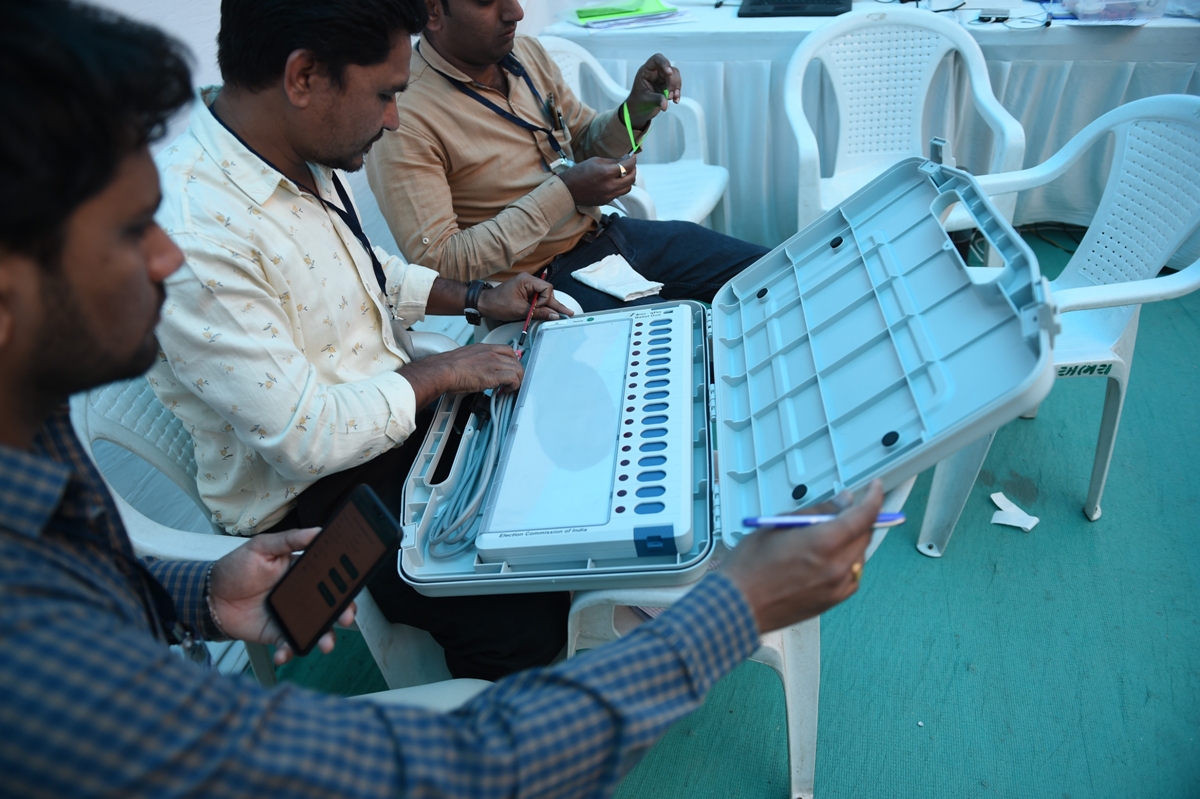Lok Sabha Elections 2019: India is taking its biggest test of democracy, with close to a billion people set to exercising their right to vote in a poll season to be conducted in seven phases for the 543-seat Lok Sabha.
Elections to the 17th Lok Sabha began on 11 April and conclude on 19 May. Counting will be held on 23 April.
Advertisement
The voter, or elector, is the most important person in any election held in any democratic country. The total number of electors for the Lok Sabha elections 2019 stands at 89,78,11,627. This number is divided into the following:
General Electors across States and UTs: 89,60,76,899
General Electors with disability: 45,63,905
Overseas Indian Electors: 71,735
Service Electors: 16,62,993
The ECI has launched a massive election campaign urging all the electors to come out and cast their vote. It is an important campaign because many voters are too lazy to not exercise their right.
Another concern for the ECI is electors failing to cast their vote due to a lack of proper documents. The most common document required to verify one’s identity at the polling station is the Voter ID card. Many voters carry the photo ID slip, which looks like a voter ID card but is not a valid document.
So what if the voter doesn’t have a Voter ID card? In that case, one can use any of the following 12 documents for verification of their identities at the poll booth.
1. Passport
Issued by the Ministry of External Affairs, GOI, the passport is one of the strongest documents confirming the identity as well as the address of the holder. It also contains the photo of the passbook holder.
2. Driving License
Issued by the Ministry of Road Transport, the driving license can be a book or a card with details of the holder including name, photo identification, address and date of birth.
3. Service Identity Card
The Service Identity Card is issued only to employees of Central government, state government, PSUs and Public Limited Companies.
4. Passbook
Issued by all banks of the country, the passbook reflects the holder’s financial standing with the bank and shows a record of all transactions with respect to the bank. A passbook has the name, address and photo of the account holder as well as verified signature and other security features.
5. Pan Card
The Pan (Permanent Account Number) card is issued by the Income Tax Department. It carries a photo of the holder and the name along with a unique Pan ID. The card, however, does not bear the address of the holder.
6. MGNREGA Job Card
Issued only to the beneficiaries of the MGNREGA scheme, this card contains the holder’s name, address, father’s or husband’s name and date of birth among other details.
7. Smart Card
Issued under a scheme of the Ministry of Labour, the Smart Card (also known as Unorganised Worker Index Number or UWIN Card) is meant to help crores of unskilled workers to avail of various social security schemes of the government.
8. Health Insurance Smart Card
Issued under the Rashtriya Swasthya Bima Yojna (RSBY), the health insurance smart card helps unrecognised sector workers belonging to the BPL category avail of health insurance coverage. Both the UWIN card and the health insurance smart card contain details of the holder like other documents in this list.
9. Pension Document (with photo)
This document is used by pensioners. The document can be used as an identity proof at any of the polling stations of the country only if it contains the prospective voter’s photograph.
10. Official Identity Card
The official identity card is issued to all MPs, MLAs and MLCs in the country.
11. Aadhaar Card
Issued by the Unique Identification Authority of India (UIDAI) under Ministry of Electronics and Information Technology, the Aadhaar contains a 12-digit unique identity number of the holder and is issued after biometric authentication. The Aadhaar is currently the most widely-used proof of identity in the country.
12. Voter ID card
The Voter ID card is the most common of all identity cards used to cast vote at a polling booth. Issued by the ECI for the first time in 1993, the Voter ID card is the most ubiquitous identification cards among citizens of India.
There will be approximately 10 lakh polling stations in Lok Sabha elections 2019 compared to 9 lakh polling stations in 2014.
The Election Commission of India (ECI) has stated that the 2019 Lok Sabha elections will also see the use of VVPATS and availability of paper trail in all polling stations.









